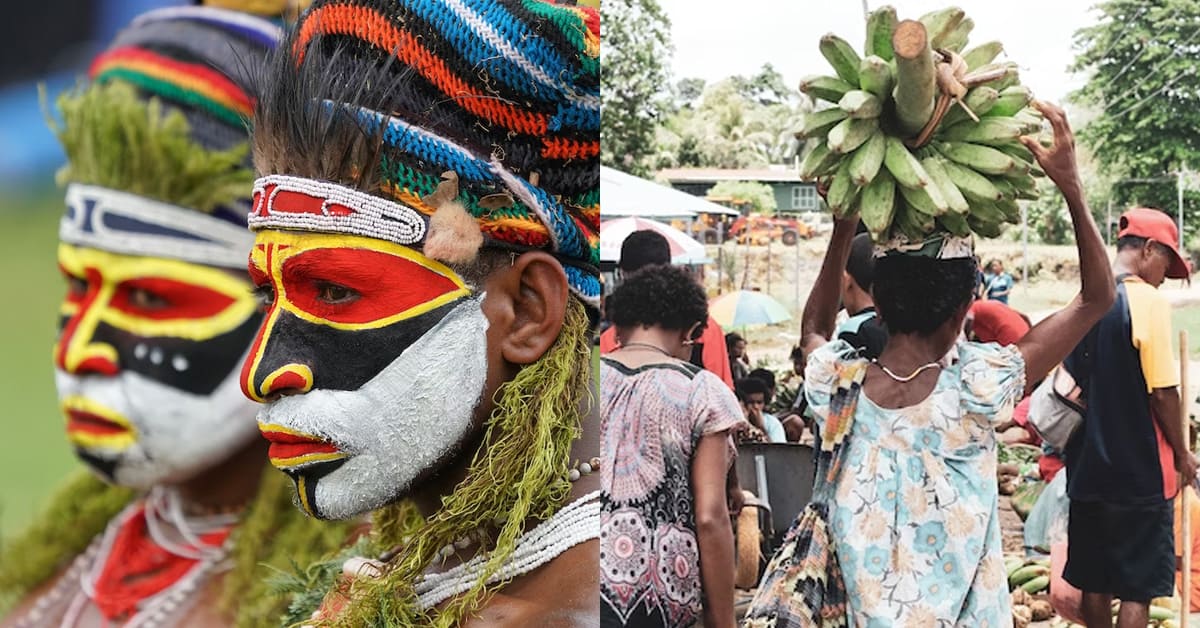Papua New Guinea is a country located in the southwestern Pacific Ocean, known for its diverse culture and unique cuisine. The country’s cuisine is a blend of traditional and modern cooking techniques, influenced by its rich cultural heritage and the availability of local ingredients. Papua
New Guinean food is characterized by its use of fresh seafood, tropical fruits, and vegetables, as well as the use of traditional cooking methods such as smoking and roasting. The cuisine is also known for its use of spices and herbs, which add depth and flavor to the dishes.
Papua New Guinean cuisine halal or not?
Is Papua New Guinean food halal?
Papua New Guinea is a predominantly Christian country, and halal food is not a common dietary requirement.
It is recommended to check with the restaurant or food provider about the ingredients and preparation methods used to determine if the food is halal.
What kind of food do Papua New Guinean eat?
Papua New Guinean cuisine is diverse and varies depending on the region and ethnic group. Some common foods include:
- Sweet potato: This is a staple food in Papua New Guinea and is often boiled, roasted, or mashed.
- Taro: Another staple food, taro is often boiled or roasted and served with coconut cream.
- Sago: This is a starchy food made from the pith of the sago palm and is often used to make porridge or pancakes.
- Fish: Papua New Guinea is surrounded by water, so fish is a common food. It is often grilled or cooked in coconut milk.
- Pork: Pork is a popular meat in Papua New Guinea and is often cooked in a traditional earth oven called a mumu.
- Vegetables: Papua New Guineans eat a variety of vegetables, including pumpkin, cassava, and greens.
- Fruit: Tropical fruits such as bananas, papayas, and mangoes are common in Papua New Guinea.
- Betel nut: This is a stimulant that is chewed by many Papua New Guineans. It is not considered a food, but it is an important part of the culture.
How can you tell if the food is halal in Papua New Guinea?
Papua New Guinea is a predominantly Christian country, and halal food is not widely available. However, there are some Muslim communities in the country, and they may have their own halal food sources.
To determine if the food is halal in Papua New Guinea, you can ask the restaurant or food vendor if they have halal certification or if their food is prepared according to halal guidelines.
You can also look for halal certification logos or symbols on the packaging or menu. If you are unsure, it is best to avoid consuming the food.
Is it hard to find halal food in Papua New Guinea?
It may be challenging to find halal food in Papua New Guinea. The majority of the population in Papua New Guinea is Christian, and there are only a few Muslim communities.
Therefore, halal food options may be limited, and it may be necessary to bring your own halal food or cook your meals.
However, some restaurants in the capital city, Port Moresby, may offer halal food options. It is recommended to check with the restaurant before ordering.
Is Papua New Guinean food healthy?
Papua New Guinean food can be healthy if it includes a variety of fresh fruits, vegetables, and lean proteins. Traditional dishes often feature fish, taro, sweet potatoes, and leafy greens, which are all nutritious.
However, some dishes may be high in fat and salt, such as those made with coconut cream or fried foods. As with any cuisine, it is important to consume in moderation and balance with physical activity.
What is Papua New Guinean food similar to?
Papua New Guinean food is similar to other Pacific Islander cuisines, such as Fijian, Samoan, and Tongan. It also has some similarities to Southeast Asian and Melanesian cuisines.
Steps to find halal food in Papua New Guinea
Here are some tips to find halal food in Papua New Guinea:
- Research halal food options in Papua New Guinea: Start by researching online for halal food options in Papua New Guinea. Check out local halal restaurants, supermarkets, and food stores that offer halal food products.
- Ask locals: Ask locals in Papua New Guinea for recommendations on where to find halal food. They may be able to provide you with information on halal food options that are not listed online.
- Check food labels: When shopping for food, check the labels to ensure that the food is halal certified. Look for the halal certification logo on the packaging.
- Visit halal restaurants: Visit halal restaurants in Papua New Guinea to enjoy halal food. You can find halal restaurants by searching online or asking locals for recommendations.
- Contact local mosques: Contact local mosques in Papua New Guinea to inquire about halal food options. They may be able to provide you with information on halal food stores or restaurants in the area.
- Bring your own food: If you are unable to find halal food options in Papua New Guinea, consider bringing your own food. Pack non-perishable halal food items such as canned goods, snacks, and instant noodles.
- Be cautious: Be cautious when eating out in Papua New Guinea. Ask the restaurant staff about the ingredients used in the food and how it is prepared to ensure that it is halal.

